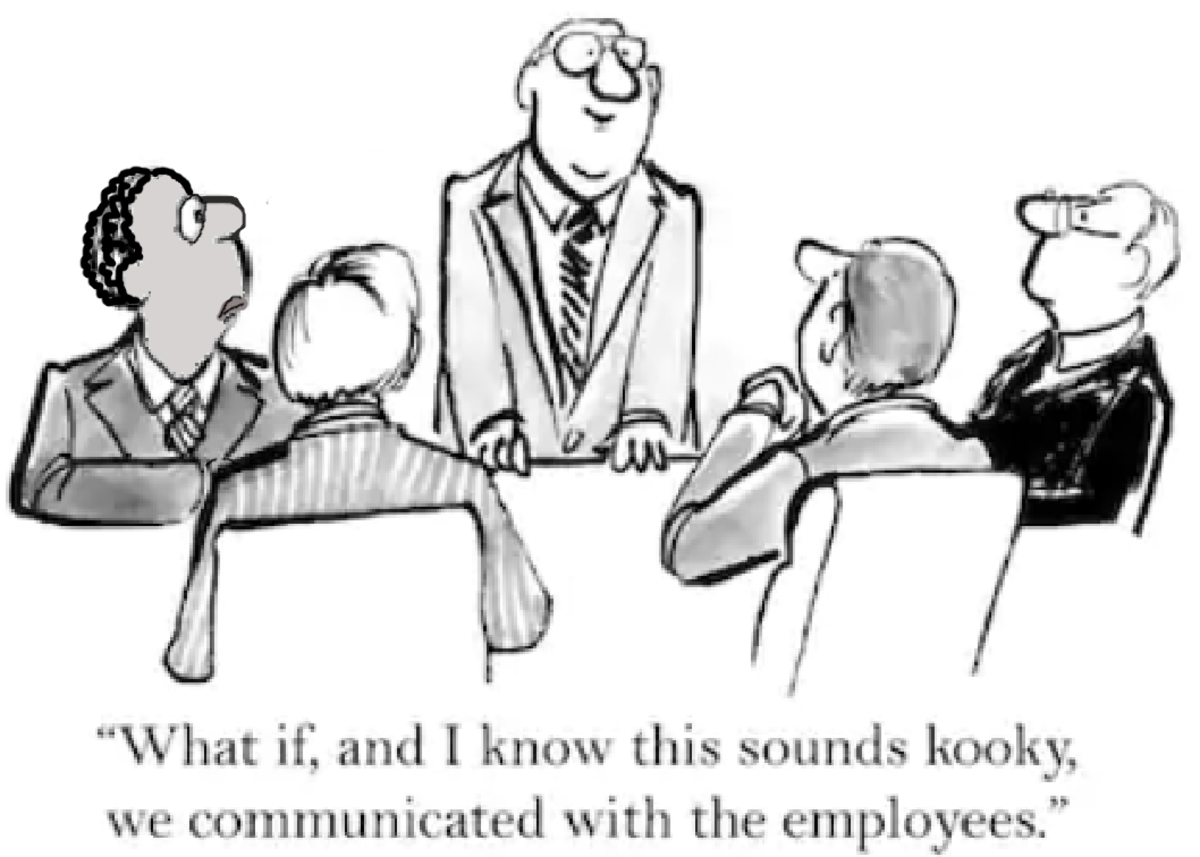Manage Staff Expectations During the Sale of your Insurance Agency
Vital Aspects to Consider When Selling Your Agency
This article addresses the following:
Make the most of talent transition;
Managing the expectations of your staff during a sale;
Developing an HR strategy for selling your agency;
Telling employees about the new strategic fit;
Being aware of your staff's employment rights;
How to bring up the subject of employability workshops;
What retention and redundancy routes in employment are available to your staff.
How to Tell Staff You’re Selling the Agency
Selling your agency feels like a private matter, but soon becomes a public matter, when news of the decision reaches your staff. This need not create mayhem. Managing the expectations of your staff during a sale, by placing them at the centre of the process, is key to ensuring a smooth transition.
Whom To Tell
If you are selling your agency and you have long-serving staff, you already know your people define the culture of your company, and contribute much to its success. What is attractive to your buyer is their impression of how things run – and next to the figures in your books – the value of your staff to these new owners is something to consider.
Deciding who to reveal the sales plan to, means determining what questions you’ll most likely face from key staff. Start with the senior team, or operate a strict ranking process, and direct people to ensure information flows down the chain. Unless you’ve gotten good at repeating yourself over the years, it can be best to delegate news of the sale.

When To Tell Staff You are Selling the Insurance Agency
Most insurance agency owners have been in the business for years. It's like having a family working for you. Breaking the news you are selling the agency on can be very emotional and cause a lot of upset in the company.
How soon you’d like other parts of the agency to know depends on how reliant you are on sales and marketing staff. People working in this area of your agency know they are disposable, replaceable, and in fierce competition for employment. As soon as they hear the agency is for sale, there will be a stressful reaction from this part of the business. The emotions people feel when their livelihood is threatened, (and when they are happy working for you and this is about to end), will put you under pressure during what is, already, an emotional decision for you.
Redundancy Statistics
How many times have you been made redundant in the last ten years?
A Sensitive HR Strategy for Selling Your Agency
Ensure you have a map of each staff member position in your agency. Through group meetings, organized into staffing ‘types’ or grades, set out what is most likely to happen before, during and after the sale.
Meetings can include any of the following:
How your staff will ‘strategically fit’ with the new owners
Each person will be asking how they fit with the agency after the sale. Make them aware roles, role descriptions, position titles and responsibilities can all change. If applicable, give them an idea of how the customer base will stay the same or change. You might be able to arrange a Q and A meeting between the new owners and your staff.

How Valuable Your Staff are to the New Owners
Usually, many staff are retained when agencies are sold, as this is a people-centred business. The US employs over two million people in the insurance industry[1], and skills are highly transferable between employers.
Some new staff could join or replace current staff (if the new owner is already in the industry). Generally, younger staff are used to retention and redundancy routes in employment. Older, long-serving staff, less familiar with these processes, could question you more. As part of continuing professional development or training, offer workshops in employability for any staff member being made redundant. A staff representative could be a voice for staff on matters concerning the sale of the agency.
Be aware that many staff will seek employment during a transition. They’re entitled to paid time off to attend interviews, and time at work to prepare for another role and look for it. The sooner you know who might stay at the agency and who will go, the easier it is to assist any staff who are moving on.
[1] InsuranceJournal.com: quote: “USA Insurance companies employ 2,211,000 workers...” Oct 13,2011,
The New Owner's Intentions
When selling your agency, it will be important for you to know something of the new owner’s intentions. Are they restructuring? Expanding? Merging? Could there be mobility issues if they transfer the core agency to a new geographical area? Are they going to replace all the senior managers? Will you and your partners need to serve an earn-out period?
A great business deal includes placing the talent of the existing staff at the centre of managing expectations during a sale. To retain productivity, and keep morale positive during this transitional time, it is wise if you and the new owners can share details of how the business will operate after the sale.
Employability Advice
Check out US employment rights during redundancy or lay-offs at the US Department of Labor
Check out UK employment rights during redundancy at the dot government website.
Re-Evaluation Career Options as an Employee?
There are many great sources of advice to help re-vamp your career and CV if you are employed by an insurance agency - and you have to move on.
Check out these hublinks for a great CV workout!
There's no need to rest on your laurels if the company is up for sale.









